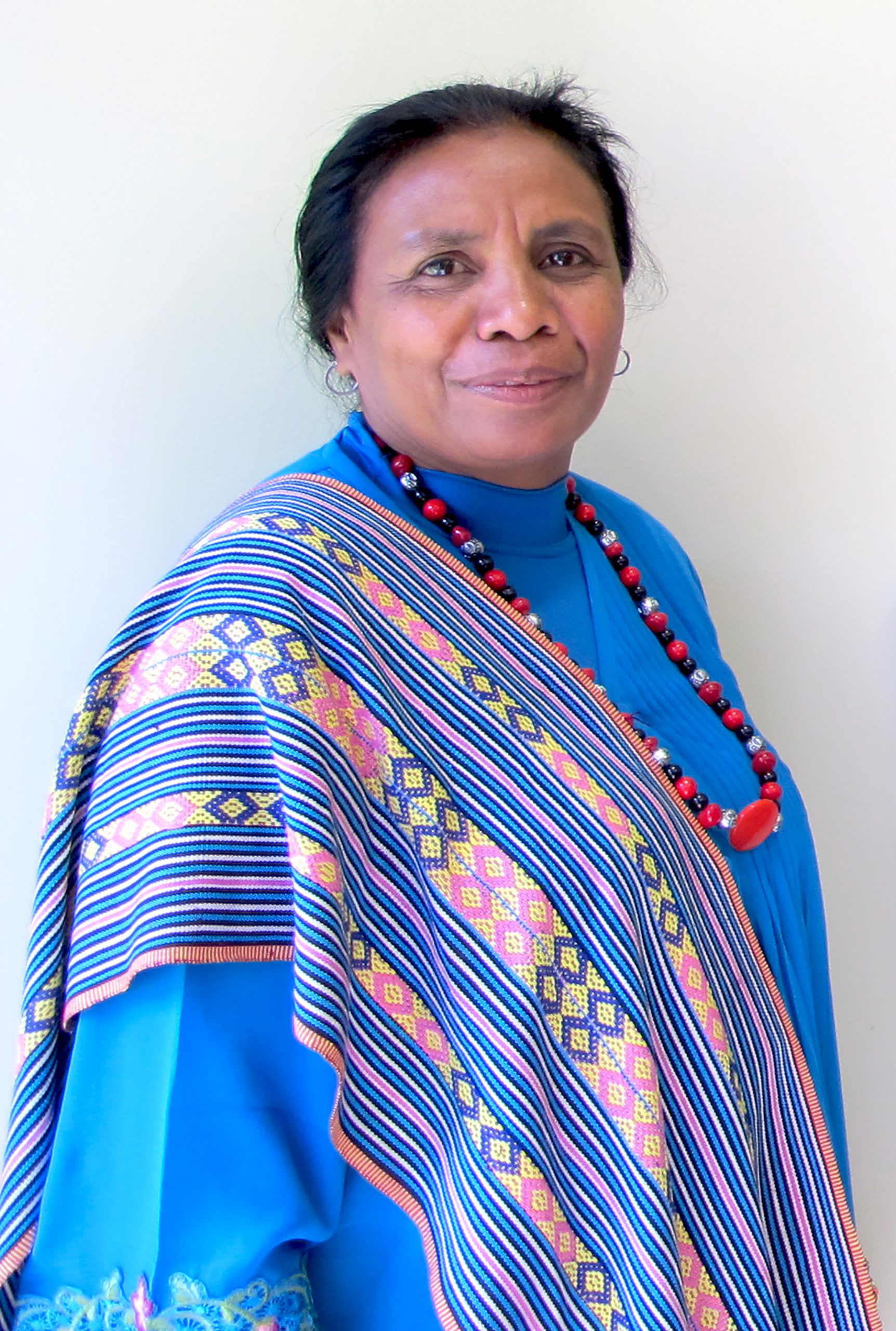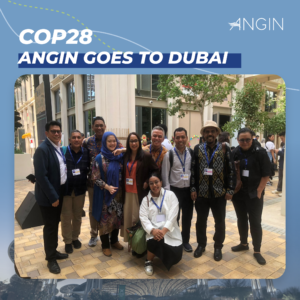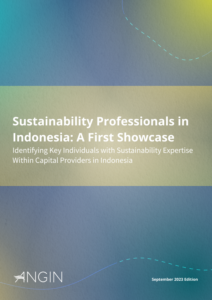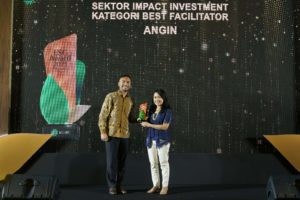Indigenous Mollo Leader and Environmental Activist
Aleta is an environmental activist recognized internationally for peaceful weaving protests to protect her people’s land from illegal miners. A charismatic indigenous Mollo leader, Aleta demonstrates how investment activities can respect the earth and its inhabitants.
“I grow big and strong because of collaboration with other people,” Aleta says.
Aleta’s story never loses its power no matter how many times it’s been told. She rose to become a leader in the community when her village and farms were threatened by landslides and polluted water from the cutting of marble stones on the Nausus and Anjaf mountains in Timor Tengah Selatan (TTS) Regency, East Nusa Tenggara. The mining enterprises also conducted deforestation – jeopardizing woods, herbs, and other natural resources vital to the people’s daily needs.
Realizing their survival was in danger, Aleta – who later became known as ‘Mama Aleta’ – gathered people from nearby villages to join her to protest. She received death threats to a point where she had to carry her baby and hide in the forest. But Aleta persisted.
According to Aleta’s tribe’s traditions, women were responsible for processing food, and collecting dye and medicine from the mountains. Thus, when the mountains were being destroyed, it was women who were at the forefront of the protests. After several years of gathering support, Aleta and 150 other women occupied the mining sites, quietly sitting on the marble rocks and weaving their traditional clothes. Meanwhile, the men took up the roles of cooking, cleaning, and caring for the children.
In 2013, Aleta won USD 150,000 from the Goldman Environmental Prize, an annual prize awarded to grassroot environmental activists from all over the world. Instead of taking the money for herself, Aleta wanted to use it to further her mission of protecting the environment. That was how the Mama Aleta Fund (MAF) program was born.
“The mission of this fund is to identify and help other women’s fight in saving their livelihoods and their surroundings,” Aleta says.
Beyond financial support, Aleta also hopes MAF could be a platform pooling knowledge and information about indigenous traditions, leadership and organizing. MAF aims to facilitate the creation of other “Aletas” in Indonesia.
Because there was very little attention paid to environmental issues, MAF took a while to get recognized. It was eventually decided that the fund would be managed under Mama Aleta Fund Foundation (YDMA), a vehicle for receiving donations and grants from willing partners.
Aside from YDMA, Aleta is currently active in two other organizations she founded: Indigenous Peoples Organization A’taimamut Organization (POKJA OAT) and Taim Hine Aleta Baun Foundation. The organizations work for the preservation of East Nusa Tenggara’s traditional ways of living including farming, livestock breeding, and weaving groups, as well as cultural festivals.
Aleta sat in the local parliament from 2014 to 2019, all the while staying true to her campaigns against exploitative investments. Even now, since retiring from this position, any investment targeting East Nusa Tenggara must win Aleta’s support. Aleta has one simple message for anyone wishing to do business on her island: “Lands and forests cannot be destroyed, stones cannot disappear, and water cannot be dried up”.
“We have an immense connection with these four elements and if one of them is destroyed, everyone will fall into poverty,” Aleta affirms.
For the community, economic activity means selling things humans can produce such as garments, corn, livestock products, art and crafts. One motto her people always hold is that one can sell what one can make, but one should not sell what one cannot make.
Aleta’s work demonstrates that women’s labour is closely tied to humanity’s livelihood and survival. In the chain of cultural obligations, women are responsible for many essential tasks, without which the community cannot survive.
Moving forward, Aleta is determined to teach others what she has learned as a leader and an activist. Aleta is a vital link in the GLI chain. Her perspective provides a lens to understand how sustainable economic activities could and should work: in harmony with nature.





